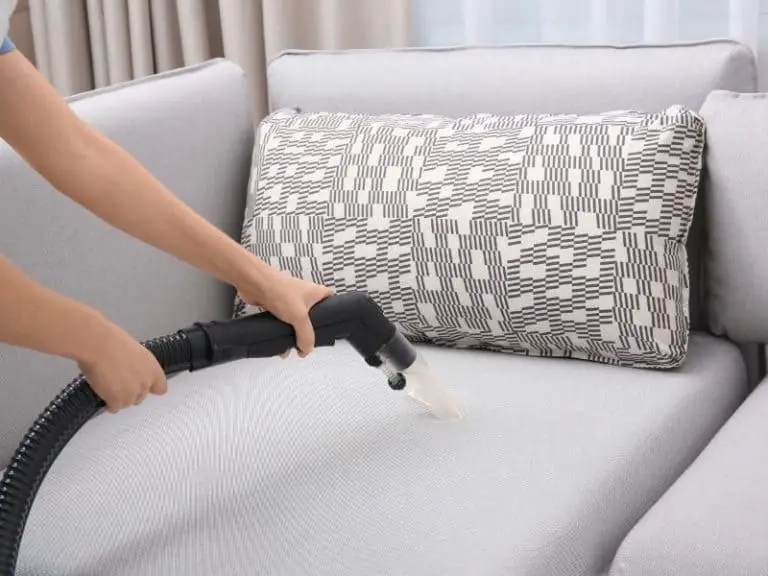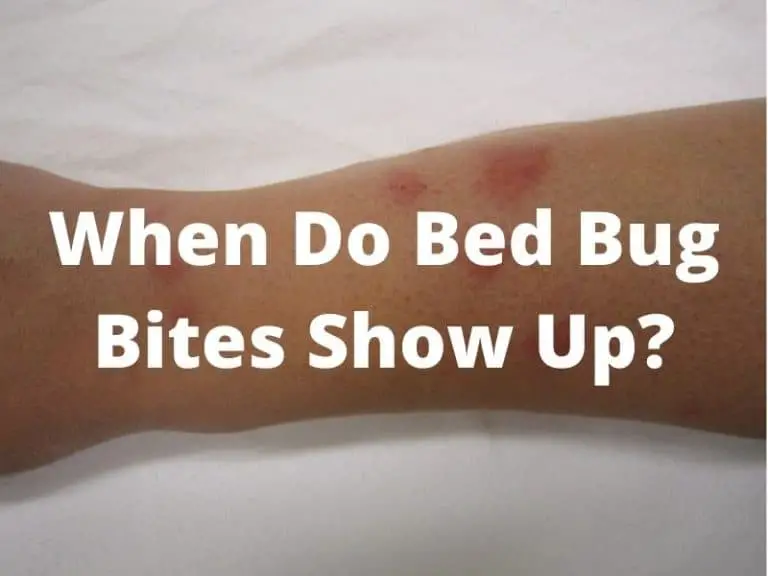Can Bed Bugs Live in Your Hair: Signs and Symptoms
Perhaps you have read or heard time and again that bed bugs can hide in many places or areas other than your bed. Due to this, you might think that some of them could be living in your hair, which makes perfect sense because head lice, which are other pests that can also wreak havoc on your life, can reside in your scalp.
Bed bugs can temporarily hide in the hair. The chance of them living there is extremely rare. Physically, they do not have the capacity to cling to the scalp and hair — they will fall off when the person moves. There are certain home remedies to try to ensure that no bed bugs are hiding in the hair.
It is perfectly understandable for people experiencing a severe bed bug infestation in their bedrooms to fear that they might have bed bugs in their hair.
However, if they are encountering all sorts of unusual symptoms concerning the scalp and mane, chances are that it’s a head lice-related problem instead of a bed bug issue.
A bed bug infestation can coincide with a head lice infestation! Just take a look at this table.
| SIGN OR SYMPTOM | BED BUGS | HEAD LICE |
|---|---|---|
| Scalp itching | Yes | Yes |
| Tickling feeling (due to movement) | Yes | Yes |
| Eggs or nits | Yes | Yes |
| Sores on scalp (due to scratching) | Yes | Yes |
| Bite marks | Yes | Yes |
| Distinctive smell | Yes | No |
Pro-tip: Did you know that one of the easiest ways to get rid of bed bugs is to use special powders? Check here if you want to know the best bed bug killer powders (safe for humans and pets) on Amazon.com now.
Bed Bugs are Great Hiders, Not Clingers
Parasites that feed on the blood of humans and animals tend to live on their hosts’ bodies. This allows them to have easy access to their meal, saving them from having to crawl or jump to and fro their source of nourishment.
Although bed bugs are parasites, too, they are not like others that also depend on the blood of their hosts to survive — bed bugs do not live on the bodies of humans.
Well, they can’t even if they want to. That’s because they do not have clawed legs that can make it possible for them to cling to human skin.
Their legs are only good for crawling. More importantly, their legs are only good for crawling on still surfaces.
It’s exactly because of this why bed bugs go out of hiding to feed only at night. They know very well that their sources of blood are laying still.
Bed bugs may also attempt to feed at any other time of the day, especially if they are famished for failing to drink blood the night before. However, it’s likely for them to fail.
Bed bugs do not live on your body because they can’t. Needless to say, they can’t live in your hair.
If you are experiencing scalp itchiness all the time and it’s getting in the way of your having a normal everyday living, it is possible that something else could be the culprit, not bed bugs.
Reasons for Bed Bugs to Hide in the Hair
Before we talk about the likelier cause of the itching of your scalp, let us first talk about some of the reasons why bed bugs may hide (and not necessarily live) in your mane.
A lot of people who share their bedrooms with bed bugs tend to complain of having bites on areas of their bodies that are not covered with bedtime clothes.
Although bed bugs can bite anywhere on the body, they much rather get blood from exposed areas. It’s just that they are more accessible and practical options.
This is the reason why it is very rare for bed bugs to drink blood from the scalp — hair gets in their way.
However, there are instances in which they will consider drawing blood from the scalp if many of them are competing for exposed areas of the body.
Bed bugs that are hiding under and around pillows, as well as those that are residing in the headboard, are likely to head to the scalp to feed if the rest of the body is unavailable.
So, in short, the chances of having some bed bugs in your hair are higher the more severe the bed bug infestation.
While bed bugs are incapable of clinging to the skin, they don’t have trouble clinging to clothes and some fashion accessories. It’s because they find it easy to attach themselves to fabrics despite not having claws.
This is the reason why bed bugs can travel from room to room, house to house, or even country to country!
Bed bugs may end up hiding or living in your hats or caps, especially if you keep them where bugs can have easy access to them, such as on the floor or under the bed.
And when you wear any head accessory that’s infested with bed bugs, some of those blood-sucking creatures may end up in your hair.
The good news is that it’s likely for them to simply fall off the minute that you remove your hat or cap or comb or tousle your hair with your fingers.
Even if bed bugs get lucky and remain in your hair because you do not move around a lot or you have very thick or curly hair, time will come when they will find it more practical to hide elsewhere.
For instance, the minute that you lay in bed to sleep, bed bugs in your hair may crawl out to hide under your pillow or the folds of your pillowcase.
Signs That You May Have Bed Bugs in Your Hair
When searching for bed bugs in your bedroom, arming yourself with a flashlight and a magnifying glass is recommended. That’s because bed bugs are tiny creatures, plus their brown to red-brown color makes them difficult to see, especially when they are hiding in cracks and crevices.
If you feel that you have bed bugs in your hair, asking someone to check out your scalp and mane is the most sensible step to take if you want to confirm whether or not bed bugs are indeed around.
Bed bugs are so tiny that you may not feel anything when they are crawling on your skin. This is why you may not detect the presence of bed bugs crawling around your scalp.
However, when you scratch your head, you may squish some of them and notice some dark-colored stains on your nails or fingertips that give off a musty odor.
In severe cases, bed bugs may also choose to lay their eggs in your hair. But you can rest assured that they will simply fall off as bed bug eggs do not stick to surfaces.
This is exactly the reason why bed bugs tend to lay their eggs in tiny cracks and crevices — they know that their eggs will be safe there until they hatch.
Another telltale sign that you may have bed bugs in your hair is that you have bites near your hairline.
Some people swear that they can smell rotten berries or coriander each time they step foot inside bedrooms or houses that are infested with bed bugs.
However, a noticeable smell is usually around only when an infestation is severe. Having just a few bed bugs in your hair is unlikely to alert your nose.
How to Keep Your Hair Free of Bed Bugs
Whether you have confirmed the presence of bed bugs in your hair or not, there’s no need to panic because it is fairly easy to get rid of them — you don’t have to rush to the local hardware or home improvement store to get your hands on a commercially sold bed bug spray or get in touch with professional bed bug exterminators in your area.
Here are some of the things that you may do to rid your hair of bed bugs, if there are, in fact, bed bugs in it.
Take a hot shower
Bed bugs do not like high temperatures. As a matter of fact, they die upon contact with hot water. This is why you may take a hot shower if you feel like you have bed bugs in your hair.
Even though the water may not be hot enough to kill bed bugs, it can cause them to panic and potentially fall off in their attempt to look for another hiding area where there isn’t a lot of heat.
Apply olive oil before bedtime
Drowning bed bugs is one of your options when it comes to eliminating those that may be hiding in your hair. No, there is no need to dunk your head in water.
All you have to do is place a small, rolled-up towel around your hairline and secure it with a clothespin, douse your scalp with generous amounts of olive oil, and put on a shower cap.
This is best done before bedtime to make sure that those bed bugs will die of suffocation. Thoroughly shampoo your hair the following morning.
Use shampoo with neem
Native to the entire Indian subcontinent as well as various places in Southeast Asia, neem is a traditional medicinal herb that offers an assortment of health and beauty benefits.
It also possesses amazing insecticidal properties, which is why it is a staple home remedy for bed bugs. Shampoo infused with neem can help get rid of bed bugs in your hair — allow the lather to stay in place for several minutes before rinsing your hair.
By the way, neem shampoo is originally intended for relieving scalp itchiness and irritation due to dandruff or an infection. It’s for reducing gray hair, too.
Use head lice shampoo
You can easily buy head lice shampoo at the nearest pharmacy. There is no need to present a written prescription from a doctor.
Although this type of shampoo is formulated to control head lice, it can also help deal with bed bugs in your hair. It’s because the active ingredient, which is permethrin, can also kill bed bugs.
Some head lice shampoo may contain herbal ingredients instead of permethrin. No matter the case, always follow carefully the directions for use that’s printed on the packaging.
Speaking of head lice, these parasites are more likely to live in your hair, not bed bugs. Head lice are known to reside in the head so that they can have easy access to blood via the scalp.
Black Bugs: They’re Likely to be Head Lice
Just because you have a bed bug infestation in your room and your scalp is itchy doesn’t necessarily mean that bed bugs are the ones responsible for it, too.
Since bed bugs may only hide in your hair and not live in it, chances are that the problem can be due to something else. Most of the time, it’s none other than head lice.
Head lice are more common in kids than in adults. This is why a head lice infestation usually affects nurseries, daycare centers, and schools — places that are dominated by children!
Adults may also suffer from head lice, although it is usually as a result of coming into contact with kids with head lice.
It’s fairly easy to mistake the presence of head lice as having bed bugs in the hair, or vice versa. No one can blame a person for committing such a blunder because the signs and symptoms of having head lice and bed bugs in the hair have a lot of things in common.
As you can see from the table above, the signs and symptoms of having head lice and the presence of bed bugs in the hair are practically the same. They can have the same set of complications, too.
For instance, both head lice and bed bugs can keep you from having a good night’s sleep because of the symptoms as well as the stress and anxiety that they can cause.
However, the only way to figure out which creepy crawlers are residing in the hair is by observing their appearance.
Head lice are smaller than bed bugs, and they are about the size of a sesame seed. They can be black, dark gray, brown, or white in color, although they are known to camouflage themselves by matching a person’s hair color.
The eggs or nits are very small and oval in shape. They can be white or yellow but, like adult head lice, they can change their color.
On the other hand, bed bugs are larger than head lice, and they are about the size of an apple seed. They are elongated, flat, and brown, but they become round and reddish after having their blood meal. The eggs are whitish or yellowish, and they look like tiny rice grains.
How to Prevent Bed Bugs From Hiding in Your Hair
The single most effective way to keep bed bugs from camping out in your hair is by dealing with the bed bug infestation in your bedroom. Whether you prefer the DIY way or with the help of the pros, putting an end to the problem can fend off the possibility of having bed bugs hiding in your hair.
While the infestation is not yet fully dealt with, consider the following:
- Place your pillows and mattress in protective casings to keep bed bugs residing in them from having access to your blood, and also prevent other bed bugs from joining the rest of the gang.
- Line your bed and headboard with double-sided tape to trap any bed bugs that will attempt to get on your bed and, ultimately, crawl on you.
- Install bed bug interceptors, which are small cup-like objects designed to accommodate the legs of your bed, as they can keep bed bugs away from your bed and body, including your hair.
- Reduce the clutter in your bedroom as this reduces the number of places where those bed bugs can hide in, thereby making it easier for you (or professional exterminators) to hunt them down.
Just Before You Scratch Your Scalp
It’s true that bed bugs can live in many places or areas in the bedroom other than the bed. However, it is rare for them to consider living in your hair.
That’s because their bodies are not particularly designed to cling to human skin, including the scalp, which is why they crawl on you only during mealtimes — while you are asleep and motionless.
However, it doesn’t mean that bed bugs cannot hide in your hair. It is possible for them to do so if the infestation in your bedroom is so severe that they are already running out of hiding places.
Scalp itchiness is more likely to be due to the presence of head lice, which can certainly live in your hair.
Knowing that bed bugs are not the culprit won’t make it any easier for you to get a good night’s sleep or have peace of mind at any other time of the day.
That’s because having head lice is just as terrifying as having bed bugs in your hair — just like bed bugs, head lice also drink your blood and can multiply rapidly and infest your family and friends, too.
Whether bed bugs or head lice are the ones lurking in your hair, doing the necessary steps to get rid of any blood-drinking creepy crawler in your hair is a definite must.
Photo credit: ©canva.com/AndreyPopov
Medical Disclaimer: TheHomePestControl is a digital publisher and does not offer personal health or medical advice. The contents of this website are not intended to substitute for professional medical advice, diagnosis, or treatment.
Affiliate Disclaimer: As an Amazon Associate, I earn from qualifying purchases made on our website. If you make a purchase through links from this website, I may earn a commission at no additional cost to you.






